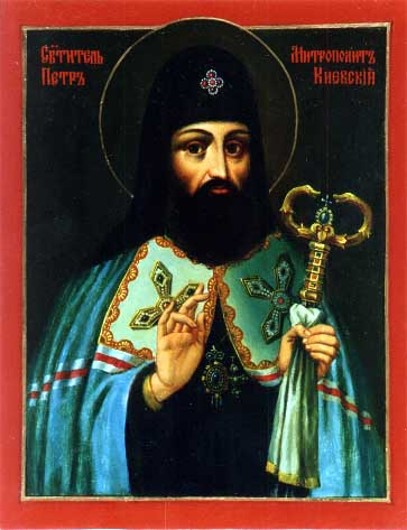Saint Peter Mogila

In 1632 Wladyslaw IV, the successor to King Sigismund of Poland, gave permission for the Orthodox to elect their own metropolitan of Kiev. Peter Mogila (1597–1646), the head of the Orthodox theological school that had been founded in 1615 at the Kievan Caves Monastery, was chosen. Mogila was fiercely opposed to the Roman Church and the Unia, but he had been trained in Latin schools and had a deep respect for Latin scholastic educational methods. He introduced these methods into the school at the Kievan Caves Monastery, including the use of Latin in the classroom. This school would become the Kievan Academy, the most influential institution of theological education in all of Russia, the training ground of many bishops and seminary professors. Also through Mogila’s many written works, including a Slavic translation of the famous catechism of the Jesuit Peter Canisius (1521–1597) and a priest’s Service Book, significant Latin influences entered the Orthodox Church in doctrinal formulation and liturgical practice.
Mogila’s writings were judged acceptable by the Orthodox bishops in a council in Kiev in 1640. And in 1642, a council in Jassy, in Moldavia, approved a modified version of Mogila’s Confession of Faith. However, even in its modified form, Bishop Kallistos Ware calls this confession the most Latin-influenced document ever endorsed by a council of the Orthodox Church. Together with the westernization forced upon the Russian Church through Tsar Peter the Great’s policies, Mogila’s writings and educational practices were a primary cause of a certain “captivity” to Western influences for some two hundred years in the theology and piety of the Orthodox people of Russia, Ukraine, and Romania. Nevertheless, he was recently canonized as a saint by the Churches in Ukraine, Romania, and Poland.
